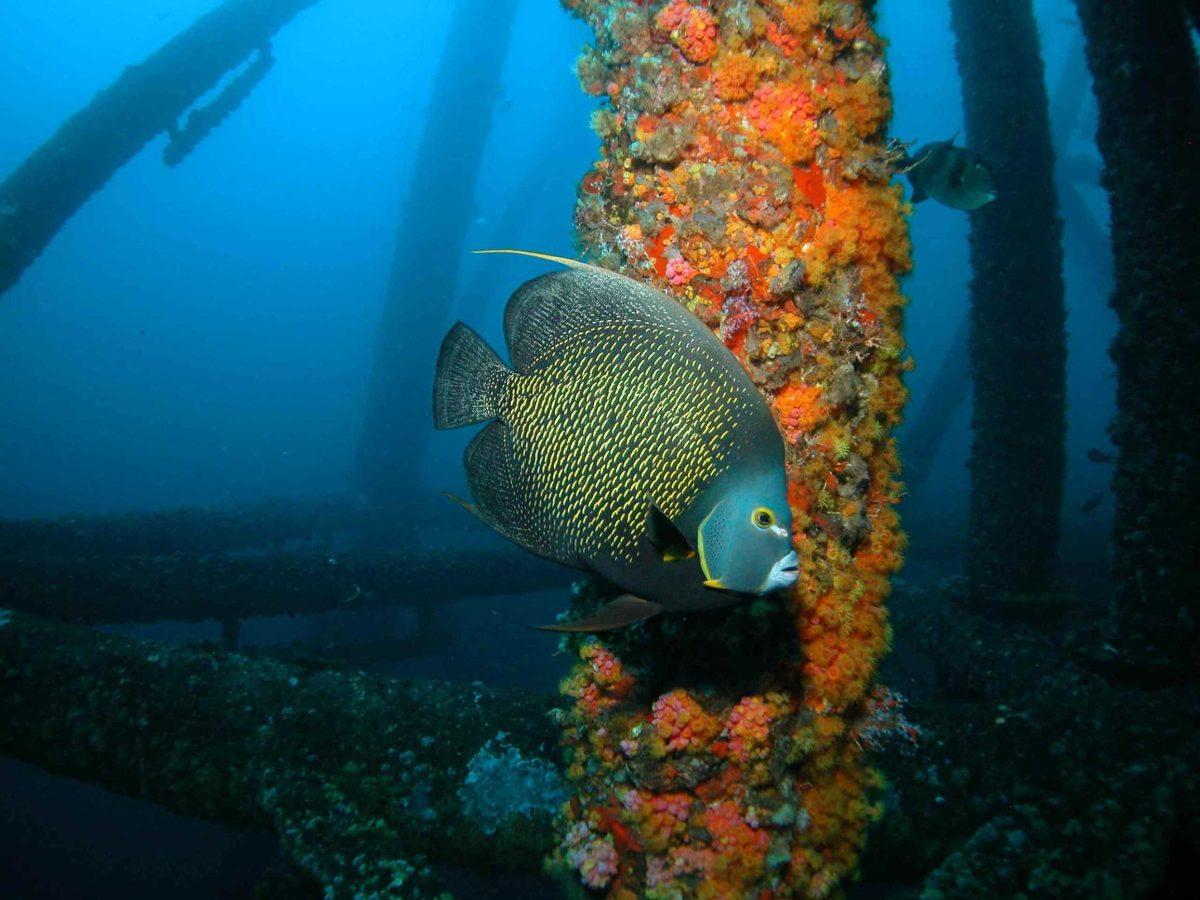On the surface, an abandoned Gulf oil rig is a massive steel structure that helps to maintain our quality of life. Below the surface, it’s a structure that supports an entirely different population — fish.
These steel structures are artificial reefs converted from oil platforms as part of the Louisiana Artificial Reef Development Program, which began in 1986 on the University’s campus.
The program takes advantage of depleted oil and gas platforms recognized as providing habitats important to many of Louisiana’s coastal fish, according to the Louisiana Department of Wildlife and Fisheries. The project has frequently been called “Rigs to Reefs” due to its important role in the transition of oil rigs into artificial reefs.
Charles “Chuck” Wilson, executive director of the Louisiana Sea Grant housed on the University’s campus, said he co-founded the project.
“Because fishing has always been good around oil platforms, we were looking to find a way to maintain this habitat and extend its life,” Wilson said.
The program is voluntary and allows oil companies to use their rigs for another purpose rather than removing them from the Gulf completely.
The cost of participating in the program is significantly less than removing the oil rigs, said Doug Peter, secretary of the Louisiana Department of Wildlife and Fisheries.
“The oil companies handle the conversion from oil platform to artificial reef,” Peter said. “They also donate approximately 50 percent of their savings to the program to fund research and to fund the cost of any navigation happen.”
Wilson also discussed the potential environmental concerns addressed in research he has conducted. Examples include pollutants that could come from these artificial reefs and the overall effect on fish communities.
“We have not seen any evidence that the reefs are polluting the water with harmful contaminants,” Wilson said. “There is a low level of mercury in the fish, however, that is naturally occurring. People shouldn’t eat a lot of oily fish anyway because that mercury can build up in your us.”
Peter also said many fishermen use the reefs because of the large concentration of fish.
“Obviously, we don’t know who fishes where — they like to keep that private,” Peter said. “What we do know is both the oil platforms and the artificial reefs see regular
Program converts oil platforms into artificial reefs
October 11, 2011





